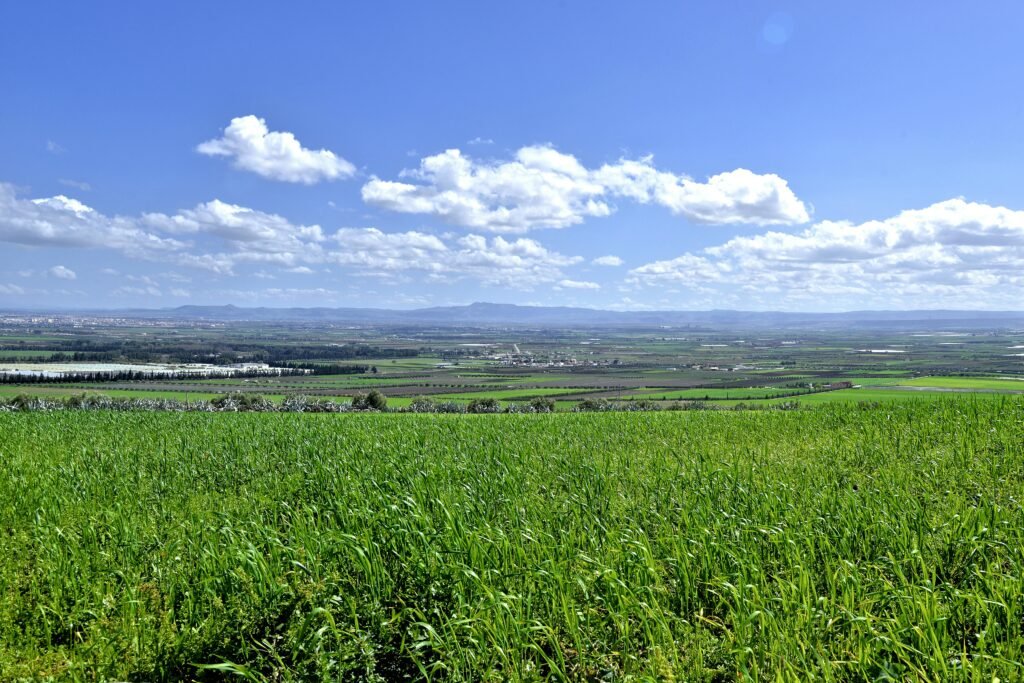
HOW NOT TO LOSE YOUR LAND: A BEGINNER’S GUIDE TO AVOIDING SCAMS WHEN BUYING LAND IN NIGERIA

HOW NOT TO LOSE YOUR LAND: A BEGINNER’S GUIDE TO AVOIDING SCAMS WHEN BUYING LAND IN NIGERIA
The idea of buying a piece of land in Nigeria either to build a house, start a business or as a long-term investment strategy can be a thrilling venture. Indeed, for many, the promise of stability that land purchase offers and the investment potential inherent in it has made buying land in Nigeria a common aspiration for many.
However, embarking on the journey of land acquisition in Nigeria can often prove to be a challenging journey fraught with potentials for frauds especially for a beginner or a greenhorn in land investment.
In Nigeria, as real estate investment continues to gain ground among both the high and middle income earners, so does the prevalence of fraudulent activities of unscrupulous elements who target unsuspecting land buyers. Simply put, buying land in Nigeria is a risky venture and requires careful consideration and proper guidance to venture into.
In this article, we shall explore proper guidelines to avoid losing your property as a beginner who is buying land in Nigeria for the first time.

1: Understand the Nigerian Land System
Before delving into the intricacies of buying land in Nigeria, it is important and indeed crucial to understand the country’s land system. First, noteworthy that Nigeria operates under a dual system of land ownership, which are customary and statutory. While customary land is governed by traditional norms and practices, statutory land is regulated by the Land Use Act of 1978. The Land Use Act vests all land in the state, meaning individuals can only acquire and through less rather than outright ownership. Generally, statutory land applies in urban areas and for large-scale development projects and can be acquired for such purposes.
In view of the foregoing, a buyer should familiarize himself with some key terms, including:
* Certificate of Occupancy (C of O): In Nigeria, a “C of O” stands for “Certificate of Occupancy,” which is a legal document issued by the government that confirms a person’s right to own and occupy a piece of land or property, essentially acting as official proof of land ownership in the country. The C of O is crucial for real estate transactions and ensures legal protection for property owners.
* Deed if Assignment: A Deed of Assignment is a legal document in Nigeria that transfers ownership of real estate from a seller to a buyer. It is also known as a Deed of Conveyance or Land Sale Agreement. It is a document that traces how a land has been passed down from the original to the current owner and, therefore, is one of the most important documents that you can get for buying a land.
* Excision: This is the process of removing land from a larger area, typically in customary land, to recognize individual ownership.
By understanding these terms and how they relate to buying land in Nigeria, you will be in a better position to navigate the legal landscape of land acquisition in the country.
2: Carry Out Research and Due Diligence
Before buying land in Nigeria, especially as a beginner, it is important that you do the following:
i. Conduct Thorough Diligence: When buying land in Nigeria, before you make any commitments; ensure to conduct thorough research on the area of your interest. Take time to investigate the property market in the area and check out amenities and future development plans.
ii. Verify Land Ownership: One of the most important steps that help you avoid falling for fraudulent people when buying land in Nigeria is to verify the ownership of the land. Request to see the seller’s C of O and other relevant documents. Also, crosscheck these documents with the state’s land registry to ensure they are valid and up-to-date. If the land is found to be under customary ownership, consult with the local community leaders to confirm the seller’s claim.
iii. Confirm Land Status from the Registry: As part of the due diligence, verify land status at the Land Registry. Some land statuses and their implications are as follows:
i. Committed land: A committed land is one that belongs to the government. Once a land is designated committed, it is a no-go area for buyers. As long as land is designated as committed or under acquisition, it is only the government that can revoke it. Thus, anybody who buys land in such an area is doing so at his own risk.
Engage the Services of a Professional
Before committing your resources to a land transaction, consider hiring the services of a reputable real estate agent or lawyer who is not only experienced in land transactions but also has a good knowledge of the area where you want to buy land in Nigeria. Such a profession will be able to provide guidance on the legal areas of the transaction and help you to navigate potential pitfalls. Such a professional would also be able to help you conduct background checks on the seller and the property at the Lands Registry.
In addition, consider the following:

* Check for Zoning and Restrictions: One red flag that you must look out for is the zoning regulations and land use restrictions that apply to the land you are buying in Nigeria. Zoning determines the type of structures and activities allowed on the land. Ensure that the land is zoned appropriately for your intended use, whether residential, commercial, or agricultural.
* Be Sure of the Absence of Boundary and Land Title Issues: Ensure that the land’s boundaries are accurately surveyed and clearly defined. Unresolved boundary disputes can lead to legal battles and unnecessary expenses. Also, ensure there are no pending legal matters on the land. Purchasing a property with a pending legal issue raises a significant red flag. When a property has a pending legal matter, it means that there is an ongoing dispute or litigation related to the property, which could have serious implications for its ownership and value. Investing in such a property entails inherent risks and uncertainties.
* Accessibility and Utilities: Consider the accessibility of the land. Verify if there are legal and physical access rights to the property, as well as road conditions and maintenance responsibilities. Additionally, ensure the availability of essential utilities such as water, electricity, sewage, and internet connectivity. Lack of proper access or utilities can significantly impact the value and feasibility of the land.
Having taken all necessary precautions on the property, there are red flags that you must now look out for do as to avoid falling for swindlers when buying lands in Nigeria, especially in places like Abuja, Port Harcourt and Lagos where the issue of land scamming is quite rampant.
The Red Flags

1. Unreasonably Low Prices: This should ordinarily be an obvious red flag, but some people who should know better would rather count themselves lucky when they are offered a piece of land at a ridiculously low price. There are no two ways about it: if a land deal seems too good to be true, then it probably is. Be wary of lands being at prices significantly lower than comparable properties in the same area. The tactics for fraudulent people is to lure their victims with enticing offers only to disappear once such victim has made payment.
2. Pressure Tactics: It is a red flag once a potential seller starts putting pressures on you to pay for a land that you want to buy in Nigeria. Legitimate sellers often understand that buying land is a significant decision so they won’t pressure you into making hasty decisions. No matter the pressure you are under, take your time to evaluate the offer and consult trusted advisors.
3. Lack of proper documentation: Accessing all the required documents of the land is non-negotiable. Infact, before you proceed with the transaction, you must see and verify all relevant documents. A legitimate seller, therefore, must provide all documents including C of O, survey plan, Deed of Assignment and any other relevant permit.
Critical Steps in the Process of Buying Land to Avoid Falling Victims
* Negotiations and Agreement: Once you have carefully verified the land and you are satisfied with the legitimacy of the seller, then you can begin negotiation. Agree on a fair price and ensure that both parties understand the terms of the sale. It is often advisable that you document all agreement in writing to avoid issues later in future.
* Deed of Assignment: Once agreement is reached on a fair price, the next step is to draft a Deed of Assignment, which would serve as proof of the transfer of ownership of the land from the seller to you. Ensure that the Deed includes all relevant details such as names of both parties, a description of the property and the agreed purchase price.
- Making Payment: When making payment, opt for secure methods such as bank transfers or certified cheques. Avoid cash transactions, as they can be difficult to trace. Ensure that you receive a receipt and keep a record of all transactions related to the purchase.
- Register the Deed: After the payment is made, the next step is to register the Deed of Assignment with the land registry in your state. This process formalizes your ownership and protects your rights to the property. Ensure that you obtain a certified copy of the registered deed for your records.
Post-Purchase Considerations
1. Obtain a Certificate of Occupancy
If you purchased land under the statutory system, apply for a Certificate of Occupancy (C of O) as soon as possible. This document is crucial for establishing your legal rights to the land and is often required for future transactions or developments.
2. Understand Land Use Regulations
Familiarize yourself with local land use regulations and zoning laws. This knowledge is essential if you plan to develop the land or use it for specific purposes. Understanding these regulations will help you avoid potential legal issues in the future.
Conclusion
Investing in land can be an exciting and lucrative venture. But the decision to purchase land requires careful evaluation. It is essential to keep an eye out for potential red flags that could turn your investment into a costly mistake. With the guidelines that have been provided, you will be able to navigate the process of buying land in Nigeria as a beginner without getting your hands burnt.








